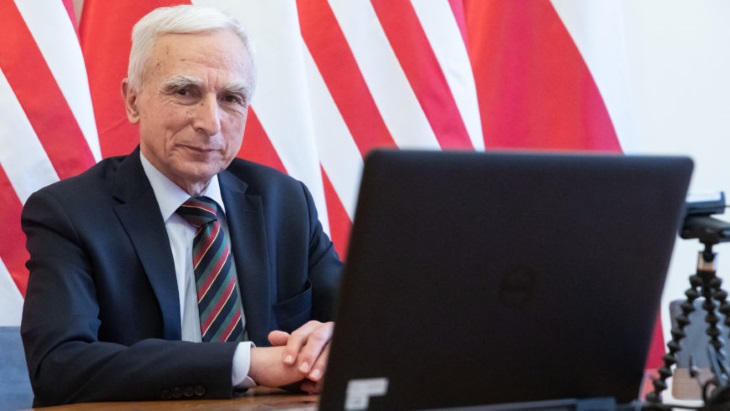Presidents Donald Trump and Andrzej Duda announced on 24 June that they were working on a deal that would facilitate the development and building of a nuclear power plant in Poland, adding that it would work with the use of American technology bought from a large US company.
The US Department of Energy (DOE) said yesterday that the 30-year agreement was the first of its kind and represented "an enduring energy bond" between the two countries.
"The US is committed to working with Poland to advance its national security, its regional security and its democratic sovereignty," Brouillette said. "The Trump Administration believes the key to energy security is energy diversity - a diversity of fuels, sources, and routes. Nuclear will provide a clean and reliable supply of electricity to the people of Poland, as well as enhance their energy diversity and security. The next generation of nuclear energy must be a part of the energy security conversation with our allies in Europe and around the world."
Strategic cooperation
In the same DOE statement, Naimski said the Poland-US agreement was not only about clean energy and security of supply. "Poland sees this strategic cooperation in a wider context. It is about geopolitical security, long-term economic growth, technological advancement, and development of a new industrial sector in Poland," he said.
Georgette Mosbacher, US ambassador to Poland, said the agreement was also "an announcement to the rest of the world that America is back in the nuclear business, thanks to US cutting edge technology".
Piotr Wilczek, Poland's ambassador to the USA added that, given the time it takes to build, operate and decommission nuclear power plants, the partnership represented "a strategic choice for the next 100 years".
In a separate statement on his official website, Naimski said the agreement will be sent to Poland immediately for him to sign later this week. The draft agreement was previously notified under Article 103 of the Euratom Treaty and the European Commission had "made no comment", he said. Article 103 states that EU Member States are to communicate to the European Commission draft agreements or contracts with a third state, an international organisation or a national of a third state to the extent that such agreements or contracts concern matters within the purview of the Treaty.
The agreement will be subject to approval by the Polish Council of Ministers and will enter into force after the exchange of diplomatic notes between Poland and the USA, Naimski said.
Brouillette reportedly told journalists that Poland had agreed to spend USD18 billion on US nuclear technology and services from companies such as Westinghouse, Bechtel and Southern Company. Poland plans to spend USD40 billion on six nuclear reactors, he noted.
The agreement follows deals signed in recent years for Poland to buy LNG from US Gulf Coast liquefaction facilities, Brouillette reportedly said. These are between Polish state-controlled oil and gas company PGNiG and Cheniere Energy, and between PGNiG and Venture Global LNG. Another deal, between PGNiG and Sempra Energy, has yet to be finalised.
Nuclear project
Polish Climate Minister Michał Kurtyka last month unveiled his PLN150 billion (USD39.7 billion) plan to construct six new nuclear power units by 2040 as the country transitions to a clean energy economy. This plan includes reducing the share of coal in electricity production to between 37% and 56% in 2030, and to between 11% and 28% in 2040, depending on CO2 prices. Coal last year accounted for 74% of Polish electricity generation.
The new Poland's Energy Policy for 2040 (PEP2040) is based on three pillars: a just transition; a zero-emission energy system; and good air quality. The first 1-1.6 GWe nuclear unit is to be commissioned in 2033, with five more units, or 6-9 GWe, to follow by 2040. They are expected to be built at Lubiatow-Kopalino and Zarnowiec, near the country's Baltic Sea coast.
Under this plan, the Polish government would create a special purpose vehicle for the investment and energy company PGE recently signed a letter of intent to sell its subsidiary PGE EJ1 to the state Treasury. That special purpose vehicle would sign an agreement in 2022 with a future partner that would take up to a 49% stake in the project and supply the reactor technology for all the reactors.





_23009.jpg)

_33392.jpg)
_53504.jpg)






